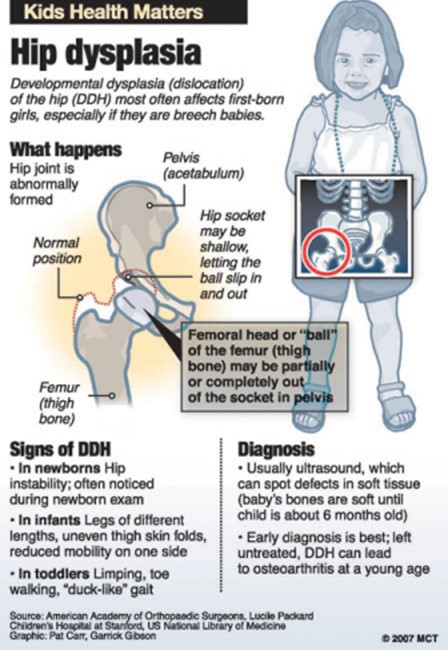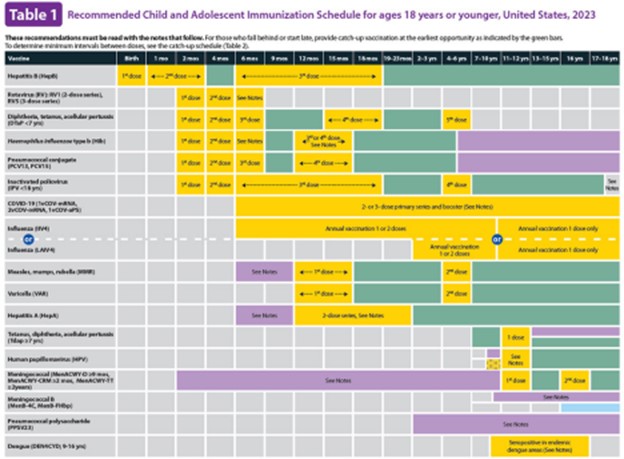A nurse is assessing a newborn who has developmental dysplasia of the hip (DDH). Which of the following findings should the nurse expect?
Inwardly turned foot on the affected side
Absent plantar reflexes
Lengthened thigh on the affected side
Asymmetric thigh fold
The Correct Answer is D
DDH refers to an abnormal development or alignment of the hip joint, which can lead to instability or dislocation of the hip. An asymmetric thigh fold is a common physical finding in DDH, where there is a difference in the skin fold between the affected and unaffected sides of the thigh. This occurs due to the malposition or displacement of the femoral head within the acetabulum.
While other findings may also be present in DDH, such as an inwardly turned foot on the affected side (also known as a positive Ortolani or Barlow test), absent plantar reflexes, or a lengthened thigh on the affected side, the asymmetric thigh fold is a key indicator of hip dysplasia in a newborn.

Nursing Test Bank
Naxlex Comprehensive Predictor Exams
Related Questions
Correct Answer is A
Explanation
Birth weight typically doubles by 6 months of age.
Correct Answer is D
Explanation
The hepatitis B vaccine is typically administered to newborns shortly after birth, usually within 24 hours.
The measles, mumps, rubella (MMR) vaccine is typically given between 12 and 15 months of age, not at 6 months.
The first dose of the diphtheria, tetanus, pertussis (DTaP) vaccine is usually given at 2 months of age, not at the 2-week visit.
The pneumococcal conjugate vaccine (PCV) is typically given in a series, starting at 2 months of age, and is completed by the age of 12-15 months. It is not given specifically on the first birthday.

Whether you are a student looking to ace your exams or a practicing nurse seeking to enhance your expertise , our nursing education contents will empower you with the confidence and competence to make a difference in the lives of patients and become a respected leader in the healthcare field.
Visit Naxlex, invest in your future and unlock endless possibilities with our unparalleled nursing education contents today
Report Wrong Answer on the Current Question
Do you disagree with the answer? If yes, what is your expected answer? Explain.
Kindly be descriptive with the issue you are facing.
